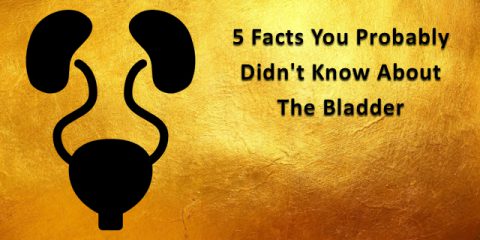By Professor Steven Kaplan, MD “I never get a full night’s sleep…I’ve got to get up two or three times a night.” “As soon as I lie down, I feel like I need to GO!” “When it was just once a night, I could handle it. Now it’s once every hour!” If any of these statements describe your experience,...
Read More
Home »
nocturia
nocturia Posts on Medivizor
5 Facts You Probably Didn’t Know About An Unappreciated Organ: The Bladder
Posted by Kathleen Hoffman on Nov 25, 2017 in Benign prostatic hyperplasia, Blog, Prostate cancer, Urinary incontinence, Urinary tract infection | 7 comments
Because of its lowly role in the human body, we think about our bladders only when something is going wrong or when we have to go really, really badly. So, November has been set aside as Bladder Health Awareness month. Here is a short review of bladder anatomy and function as well as common problems that can happen. Your bladder is connected to your...
Read More
To receive all the
cutting-edge updates personally relevant to you
(free and private)
Categories
- Benign prostatic hyperplasia
- Blog
- Brain Health
- Breast cancer
- Cancer
- Colorectal cancer
- Coronary artery disease
- Coronavirus / COVID-19
- Diabetes mellitus
- Erectile dysfunction
- Hodgkin's lymphoma
- Hypertension
- Impaired driving
- Infectious Disease
- Infertility
- Kidney stones
- Leukemia
- Lung cancer
- Lymphoma
- Melanoma
- Men's Health
- Mental Health
- Multiple Myeloma
- Nocturia
- Non-Hodgkin lymphoma
- Overactive bladder
- Parkinson's Disease
- Prostate cancer
- Rare disease
- Rheumatoid Arthritis
- Stroke
- Urinary incontinence
- Urinary tract infection
Array
(
[0] => WP_Term Object
(
[term_id] => 2221
[name] => Benign prostatic hyperplasia
[slug] => benign-prostatic-hyperplasia
[term_group] => 0
[term_taxonomy_id] => 2222
[taxonomy] => category
[description] =>
[parent] => 0
[count] => 222
[filter] => raw
[cat_ID] => 2221
[category_count] => 222
[category_description] =>
[cat_name] => Benign prostatic hyperplasia
[category_nicename] => benign-prostatic-hyperplasia
[category_parent] => 0
)
[1] => WP_Term Object
(
[term_id] => 1
[name] => Blog
[slug] => blog
[term_group] => 0
[term_taxonomy_id] => 1
[taxonomy] => category
[description] =>
[parent] => 0
[count] => 485
[filter] => raw
[cat_ID] => 1
[category_count] => 485
[category_description] =>
[cat_name] => Blog
[category_nicename] => blog
[category_parent] => 0
)
[2] => WP_Term Object
(
[term_id] => 249
[name] => Prostate cancer
[slug] => prostate-cancer
[term_group] => 0
[term_taxonomy_id] => 249
[taxonomy] => category
[description] =>
[parent] => 0
[count] => 953
[filter] => raw
[cat_ID] => 249
[category_count] => 953
[category_description] =>
[cat_name] => Prostate cancer
[category_nicename] => prostate-cancer
[category_parent] => 0
)
[3] => WP_Term Object
(
[term_id] => 2224
[name] => Urinary incontinence
[slug] => urinary-incontinence
[term_group] => 0
[term_taxonomy_id] => 2225
[taxonomy] => category
[description] =>
[parent] => 0
[count] => 192
[filter] => raw
[cat_ID] => 2224
[category_count] => 192
[category_description] =>
[cat_name] => Urinary incontinence
[category_nicename] => urinary-incontinence
[category_parent] => 0
)
[4] => WP_Term Object
(
[term_id] => 2225
[name] => Urinary tract infection
[slug] => urinary-tract-infection
[term_group] => 0
[term_taxonomy_id] => 2226
[taxonomy] => category
[description] =>
[parent] => 0
[count] => 25
[filter] => raw
[cat_ID] => 2225
[category_count] => 25
[category_description] =>
[cat_name] => Urinary tract infection
[category_nicename] => urinary-tract-infection
[category_parent] => 0
)
)




